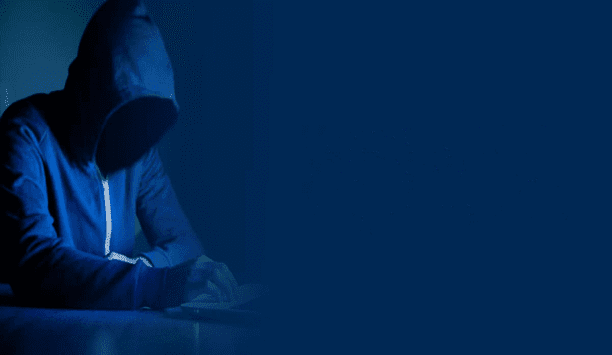 Tough demands are placed on the digital video recorders in McDonald's restaurants. One of the Dallmeier units even survived being attacked by a burglar and dumped in a sink of water. But there are also challenges in everyday situations, and the machines must be robust enough to operate in a catering environment and flexible to allow upgrading if requirements change. They need to be easy to operate and, above all, they must provide evidence-quality recordings, with no risk of anyone changing the settings or jeopardising network security.
Tough demands are placed on the digital video recorders in McDonald's restaurants. One of the Dallmeier units even survived being attacked by a burglar and dumped in a sink of water. But there are also challenges in everyday situations, and the machines must be robust enough to operate in a catering environment and flexible to allow upgrading if requirements change. They need to be easy to operate and, above all, they must provide evidence-quality recordings, with no risk of anyone changing the settings or jeopardising network security.
The choice of Dallmeier recorders for the heart of the Southern Region's systems has followed extensive - and continuing - testing of the Dallmeier recorders against other makes. "One of the key things we always investigate is whether a product is as secure as Dallmeier's," says Southern Region Security Manager Andy Lane.
"It's by far and away the best product for the money that we have found," says fellow Southern Region Security Manager Robbie Hawes. Although the organisation has a long-standing relationship with Dallmeier, "if we thought we could find a similar quality product at a cheaper price we would do so - we are a business. However, we haven't found one."
Long-standing relationship
The UK has more than 1,000 McDonald's restaurants, with operations split into northern, central and southern regions. There are about 400 restaurants in the Southern Region and virtually all have CCTV. About half the restaurants are company owned, with the remainder being franchises. "We use only Dallmeier recorders in the company-owned restaurants in the south," says Mr Hawes. So far, 78% of the region's restaurants have a Dallmeier product, installed by Complete Security Systems Ltd. The remainder are still using older analogue units, which are being phased out. "And I believe that the majority of franchises put in a Dallmeier product. They know it's robust, they know it's reliable," he adds.
McDonald's was an early adopter of digital hard disc recorders and the Southern Region's relationship with Dallmeier dates back to late 1999. "We were looking to move from analogue into digital products - they were just coming onto the market at that point," says Mr Lane. The main concern was whether digital images would be allowable as legal evidence. "Dallmeier's products already had security features so that the image couldn't be altered," he adds. "We've built the relationship from there."
Safe and secure
Images are recorded locally whenever a camera detects movement. Some of the Dallmeier recorders are also linked into the company network, which allows any incidents to be reviewed. "We are running alarm monitoring through a number of the systems as well," adds Mr Lane. "The monitoring station can view the cameras. It's very good for reducing false activations."
Other companies regularly submit recorders for testing in an attempt to persuade McDonald's to make a switch. Security is one of the key concerns because of the links into the company network. The security and information services (IS) departments both try their best to expose weaknesses. "In the last 12 months, we've probably looked at 10 or 12 different units," says Mr Lane. None has passed the tests. The IS department had already spent a good number of weeks trying to 'destroy' a Dallmeier recorder and was unable to do so. "They were very complimentary and said it was very good."
 Vulnerable digital video recorders could provide an easy entry point into the company network and introduce exposure to viruses or trojans. Another aspect that is checked is the possibility of users getting into the background operating system and downloading material such as films from the Internet.
Vulnerable digital video recorders could provide an easy entry point into the company network and introduce exposure to viruses or trojans. Another aspect that is checked is the possibility of users getting into the background operating system and downloading material such as films from the Internet.
Other key issues that are important to McDonald's are reliability, ease of use and flexibility. With the Dallmeier product, Mr Hawes points out, McDonald's can put in a standard specification machine and then have it upgraded later with additional hard disc or channel capacity, or extra features such as remote monitoring. "A lot of the products we are sent to test are just a box - if you later want it do something extra, you have to buy a new box," he says. "Technology does move on," agrees Mr Lane, "but we know we can continue to use Dallmeier's products into the future."
The selection of high-quality recorders is matched by attention to the cameras. "If you invest in a decent product to record the images, you need to feed that product with decent images," says Mr Hawes. The cameras include Dallmeier models, particularly Cam_in PIX® domes, which are designed for backlit situations such as looking out to a brightly lit exterior. These have been adopted as the standard solution for front doors in McDonald's' Southern Region.
Primary focus
Staff safety was a prime reason for having a high-quality CCTV system. "We are open to anyone who walks through the front doors," points out Mr Lane. But McDonald's' investment in high-quality CCTV systems brings further benefits. The restaurants' prime locations mean that local police often turn to McDonald's for images of crime or disorder in town centres. "The incident often has nothing to do with our restaurant but we may have images that can be of use," says Mr Lane. "Suspects may have met in one of our restaurants, or have claimed to have met there as some sort of alibi," adds Mr Hawes.
It is not only in major crimes where the Dallmeier recorders play their part. Disorder is also very prevalent on a lot of high streets, says Mr Lane, and McDonald's is a popular meeting place - often the last place that is open at night. "We build up a relationship with the police in the community," he says. The cameras have helped in the enforcement of Anti-Social Behaviour Orders, proving that someone had breached an order to stay out of a particular area.
 Cameras, and sometimes monitors, are positioned overtly so that everyone knows that they are being recorded. "There is a deterrent message and we want to encourage that," says Mr Hawes. "We want people to know we've got CCTV; we want people to know we use it - and we want them to know it works so that they will behave better as a result."
Cameras, and sometimes monitors, are positioned overtly so that everyone knows that they are being recorded. "There is a deterrent message and we want to encourage that," says Mr Hawes. "We want people to know we've got CCTV; we want people to know we use it - and we want them to know it works so that they will behave better as a result."
The high-quality CCTV images can be supplied to the police in the event of an assault or break in at the store. "We've had considerable success recently where the Dallmeier product has been linked to the alarm and monitored remotely and that has enabled the police to make a number of arrests for very serious crimes," he adds.
One of the culprits appeared to think that there was a simple way of getting rid of the evidence. "A machine was attacked and destroyed during one of these incidents," says Mr Lane. The attack on the recorder ended with it being thrown into a sink of water. "I took the unit directly to Dallmeier's Pucklechurch UK headquarters as we knew there had been images on it. Dallmeier engineers spent some time during the day to get the images off the machine and we gave them to the police the next day."
The McDonald's team was impressed by the level of service demonstrated by this incident. "We know that wherever possible they will go out of their way to help," says Mr Hawes.
Keeping it simple
A guiding principle of McDonald's' security products is that they should be standardised across as many stores as possible. "That cuts down on the training - managers do move areas and between stores," says Mr Lane.
Many people have access to each Dallmeier recorder and so it is essential to ensure that none can erase recordings or change the mode of operation. "One of the good things with the Dallmeier product is that you can set access levels," says Mr Lane. "The stores are on the very minimum level needed to operate the recorders." Managers simply need to know how to review images and how to burn them to disc if necessary. "It is so easy with the software that Dallmeier has developed," says Mr Hawes.
Forward planning
Mr. Lane welcomes Dallmeier's willingness to carry out bespoke developments, including co-operating with McDonald's' other technology suppliers. One idea under consideration is to link the CCTV to the till systems. Benefits could include confirming that an order is being given to the correct customer at a drive-through restaurant. Another idea is to use automatic number plate recognition technology to trigger rewards for regular customers. "There are lots of things like that that we are looking at, and every time Dallmeier comes back to us and says that they can help. It's great to know that we've got that sort of backup," he says.
"As you move to digital CCTV, the recorder is effectively a computer," says Mr Hawes. "It prompts you to start thinking differently. Why have a machine that's just recording images when it can do so much more for you?"





